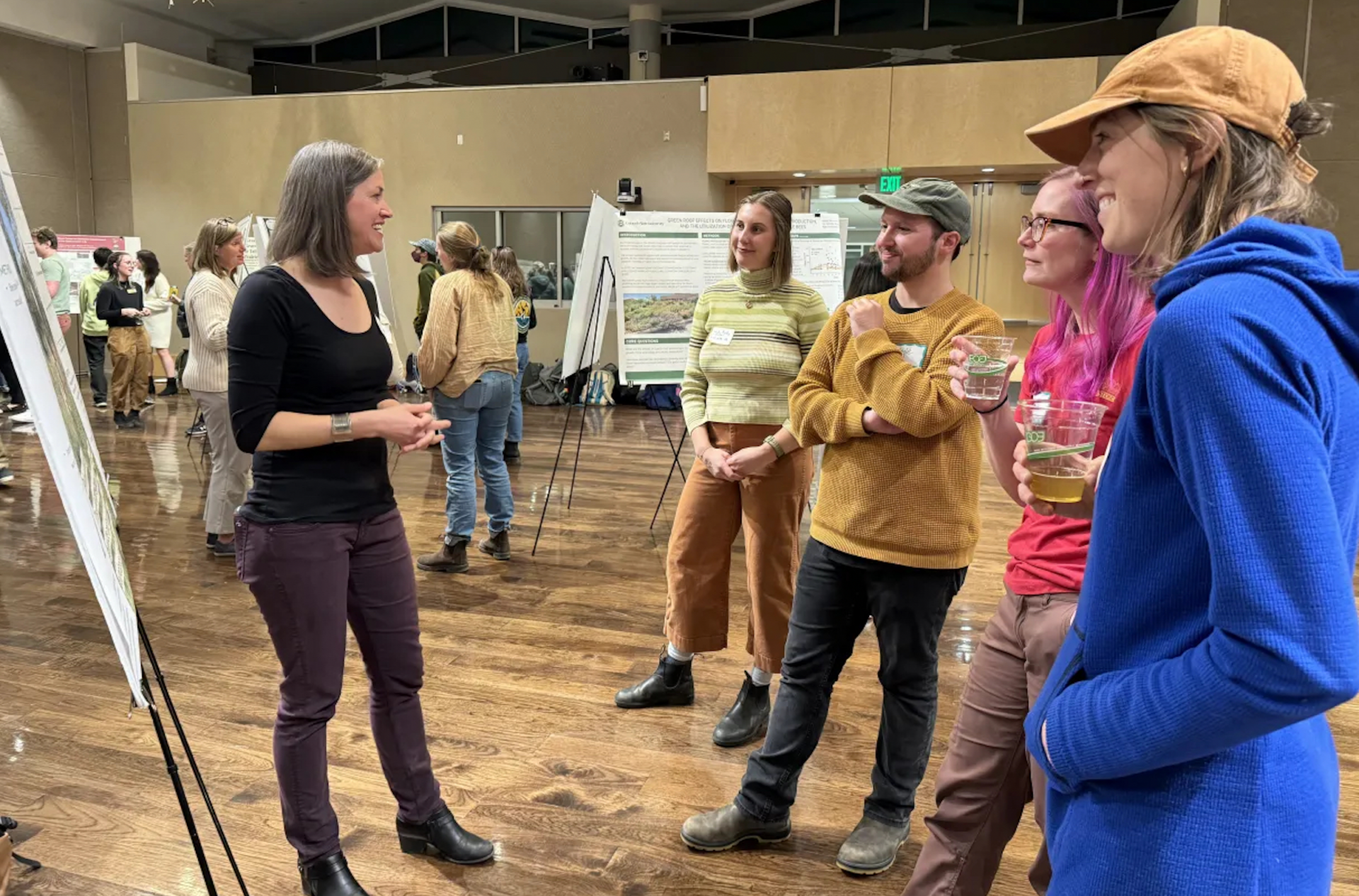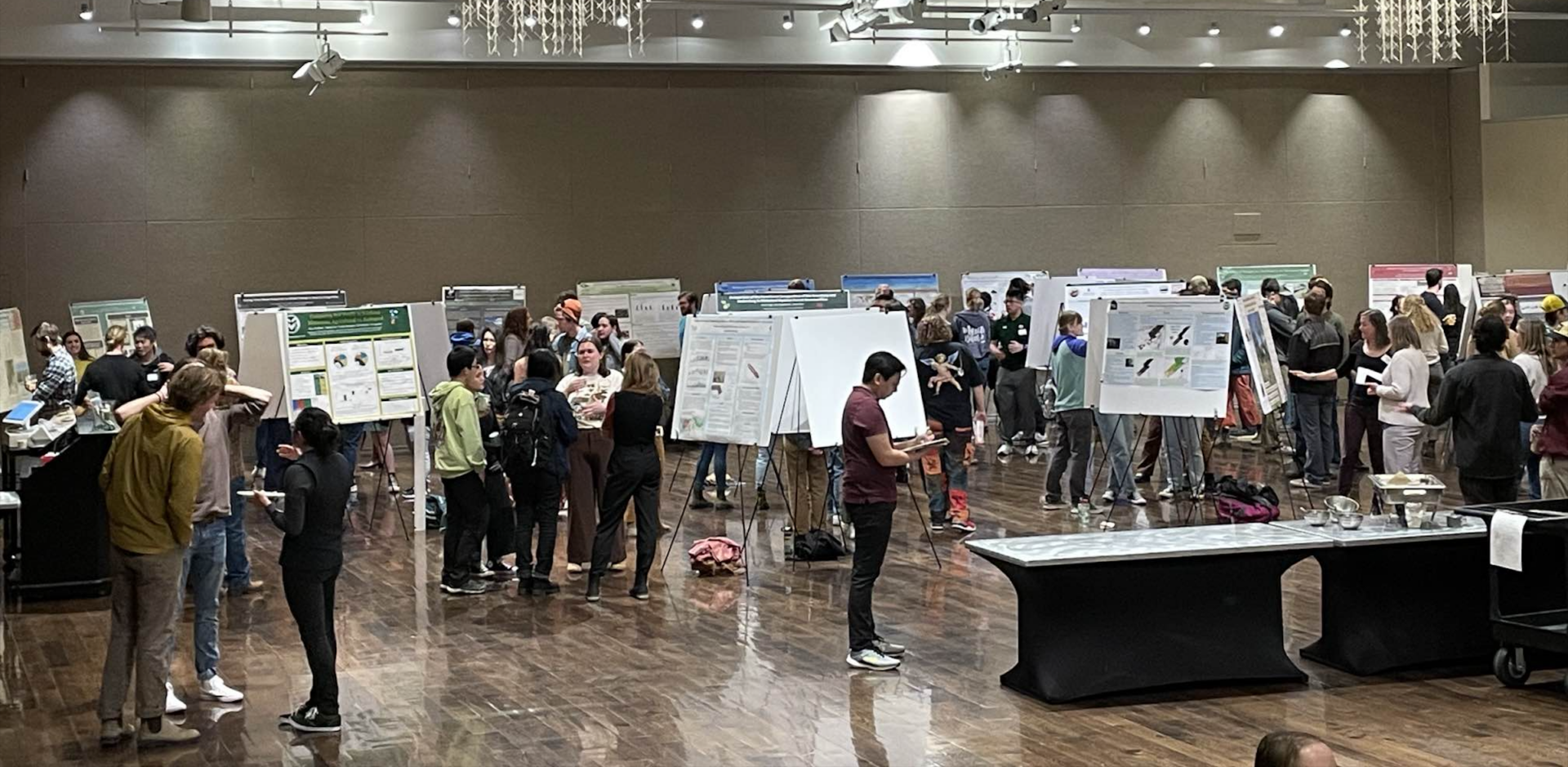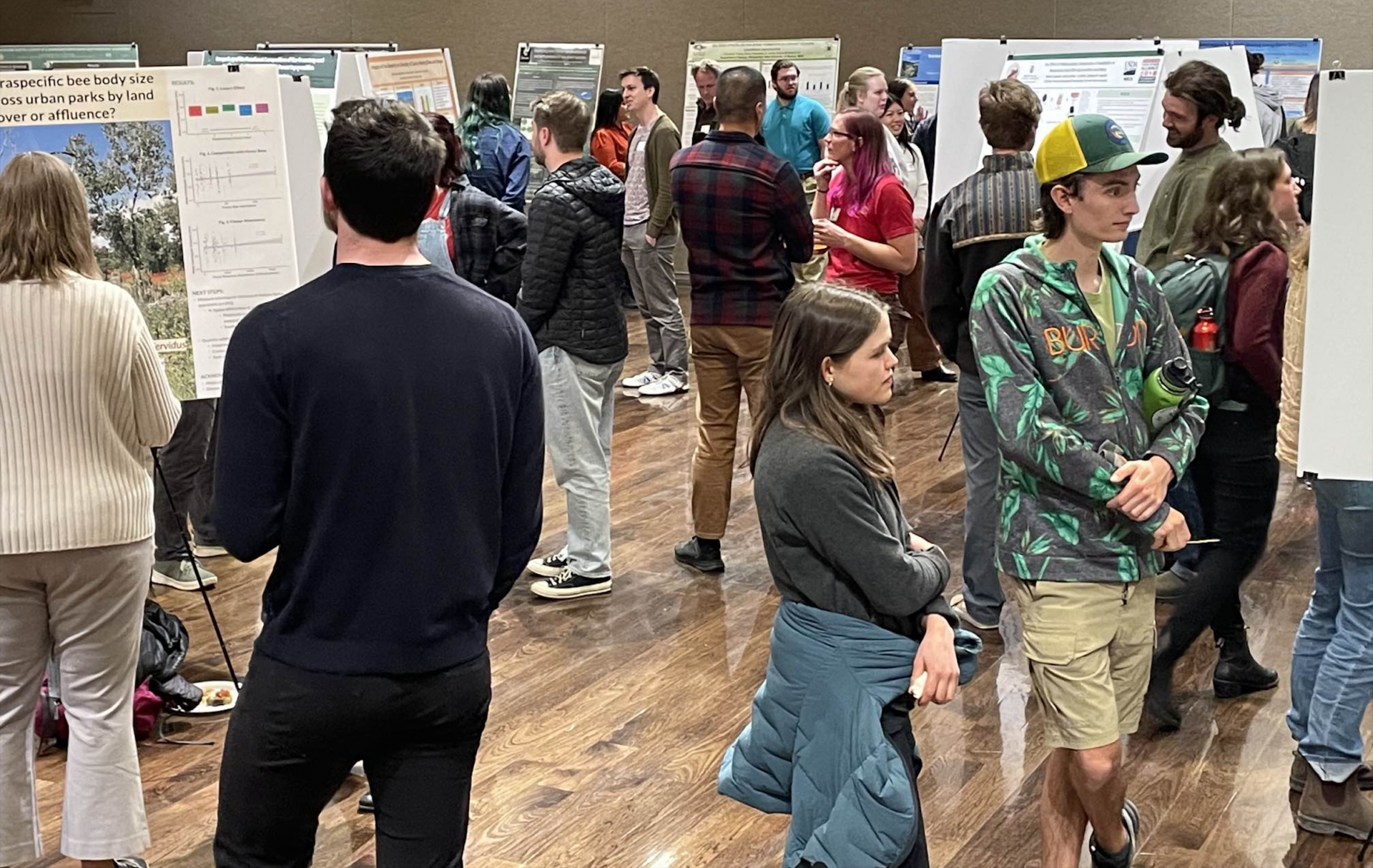
Story by Lizzy Rylance
In early February, the Front Range Student Ecology Symposium celebrated its 30th anniversary at Colorado State University.
For three decades, this symposium has been organized by students in the Graduate Degree Program in Ecology as well as neighboring programs in the natural sciences. The symposium is organized like a traditional scientific conference and features keynote speakers, poster and oral presentations, and interactive workshops put on by students.
The event offers a supportive environment for undergraduate and graduate student researchers in ecology to come together and share their work.
Behind the scenes, graduate student volunteers spend months planning the event and raising funds from departments across campus and local businesses in Fort Collins. The result is a lively two-day celebration of research and community, united by a love of ecology.

From niches to networks
For FRSES President Kyle Ruszkowski, the community-building opportunities at the symposium are the heartbeat of the event.
“I think FRSES’ theme this year perfectly embodies that: ‘From Niches to Networks.’ So getting out of your own little silos of research and connecting with other people’s research,” Ruszkowski said. “You gain ideas, different perspectives, and then you bring that back to your research and it makes you a better scientist.”
The connections students make can have a lasting impact. Ruszkowski, who is a Ph.D. student in the Graduate Degree Program in Ecology, has now participated three years in a row.
“FRSES is one of the first things that I became involved with when I moved to Fort Collins for grad school,” Ruszkowsi said. “That’s where I made a lot of my initial friend groups, and a lot of them still persist.”
Alum returns as speaker
One of this year’s keynote speakers was CSU alum Christina Alba, an associate research scientist at the Denver Botanic Gardens.
Alba said her connection to FRSES is a personal one; she first attended the symposium 20 years ago as a master’s student in the Graduate Degree Program in Ecology. The symposium provided Alba with the opportunity to give her very first research presentation as a graduate student.
“It’s low stakes, which means that it’s inviting, and it really does feel like a good opportunity to just give it a try and see how it goes in a non-judgmental setting,” Alba said.
Since graduating from CSU, Alba has had a dynamic career researching the ecological drivers of plant diversity and distributions. Her team studies both wild and urban ecosystems and contributes to natural history collections at the Denver Botanic Gardens.
Alba reflected on her unique perspective of returning to FRSES as a keynote speaker.
“It’s so cool to see that people are still coming in with that same goal of wanting to make a difference, following their passion, and working really hard,” Alba said. “Having it connect out to the community seems to be a very high priority, and that’s awesome to see.”

K-12 engagement
The Front Range Student Ecology Symposium encourages participation from local primary and secondary schools.
This year, middle school students from the Logan School for Creative Learning, located in Denver, attended the symposium and gave presentations on their science projects.
Amber Rudeen, a unit trip teacher at the Logan School, said that the students particularly enjoyed touring CSU.
“It’s fun being on a college campus,” Rudeen said. “A lot of the students have never been to the CSU campus before.”
During the tour, students visited the Department of Biology, where they learned about the specimen collections. Students also toured the Plant Growth Facilities, including the conservatory.
“They got to hear from grad students working there and learn from them directly,” said Casey Kohn, an environmental education teacher at the Logan School. “Hearing from grad students working on those projects was really cool because it’s very authentic learning.”